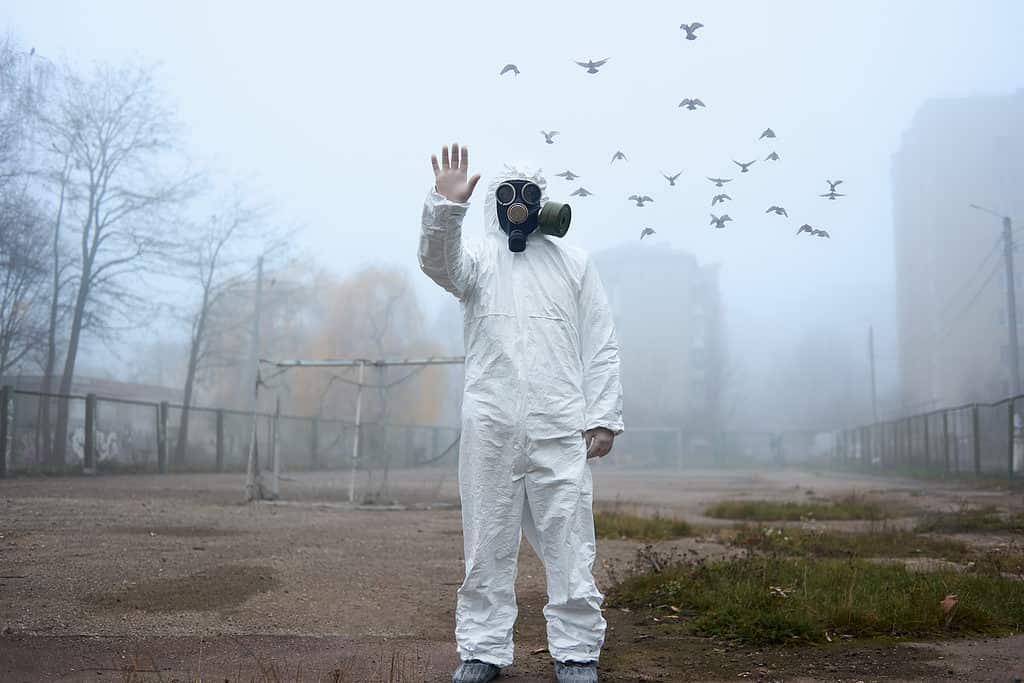Radiation is a common form of cancer treatment. Around 50% of cancer patients receive radiation therapy. Concentrated radiation is effective at killing cancer cells, but it also kills some healthy cells. Healthy cells are protected as much as possible because they are needed to repair the damage caused by radiation once the cancer is gone.
That points to one very important fact – radiation has long term effects. Some effects could be permanent, which is known as radiation necrosis. The lasting impact of radiation therapy depends on the treatment location and amount of radiation exposure.
As cremation becomes more common and more people opt for the service, including many cancer survivors, it’s leading to more questions about the process. One interesting question is whether or not cremains can emit radiation. It’s a question that needs to be addressed for the safety of cremation workers and the surviving family members that receive the cremains.
When Radiation Could Contaminate Cremains
Radiation is very dangerous when it isn’t controlled and administered safely. But not every person who’s received radiation therapy needs to be concerned about contaminated cremains if they prefer cremation over burial. It’s only a concern if the radioactive material is still present in their body at the time of the cremation.
The Cremation Association of North America (CANA) has an excellent guide on radiation and cremation. It notes that radiopharmaceuticals remain in the body for up to 12 days. However, if a radiation oncology implant is used it can take a few months for the implant to degrade enough to a safe level for cremation.
BUT to err on the side of caution, the Canadian Nuclear Safety Commission suggests that precautions be taken if radiation therapy was received within the last two years.
There are very few instances where researchers have been able to look at the effects of cremating someone who has recently received radiation therapy. In one such case, traces of radioactivity were found in some areas of the crematorium, including the bonecrusher. That suggests that the cremains could very well have low levels of radiation. They were considered safe levels of radioactivity, but it was present.
If it’s been some time since the last session of radiation therapy then cremains shouldn’t pose any risk at all. But the limited research does suggest precautions need to be taken so prevent radiation exposure if a person has been treated within the last few months prior to dying.
Why Radiation Therapy Poses a Threat for Some Crematorium Workers
No federal regulations concerning the cremation of people treated with radiation exist today. Cremation is regulated state-by-state. Some states understand the potential risk of radioactive cremains and radiation exposure. As such, crematoriums in some states require information on past radiotherapy. Other states don’t require notification. In those states, crematorium workers could be at risk.
In one instance of a cancer patient being cremated in Arizona, where notification on a person’s history of radiation therapy wasn’t required, the crematorium and operator were tested for radiation. The biggest concern was that the operator could have breathed in radioisotopes, which could directly affect his tissue. The testing found traces of the same radiation the patient was treated with in the cremation chamber. Luckily, the operator didn’t have traces of that type of radiation, but he did have low levels of another type of radiation.
If nothing else, worker advocates have rightly expressed that all crematorium workers should have the right to know if they are handling remains or cremains that could expose them to radiation. They should also be given the proper protective equipment so that there’s little to no risk of radiation exposure during any cremation.
So far, the limited research has only found low levels of radiation in crematoriums. The concern is that the levels could go up at certain times, increasing radiation exposure, which ironically increases the risk of cancer in healthy individuals.
At Green Cremation Texas we are committed to improving crematorium practices so that they are better for the community and environment. If you are a cancer patient or a loved one recently passed away from cancer complications give us a call. We can discuss if cremation is a safe option.






